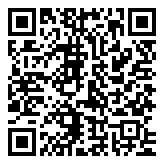STAN Data Annotations: Automating Probabilistic Programming
MEET THE PRESENTER
Nina Yanin is a master of science student at York University, working under the supervision of Manos Papagelis. Her research focuses on spatiotemporal trajectories using deep learning techniques. She is particularly
interested in learning representations of spatiotemporal data, which are crucial for various real-world applications such as understanding human mobility, studying epidemic spreading, optimizing smart transportation and
improving traffic management. Currently, her work centres around exploring the navigation patterns of users in online discussion forums and investigating how these patterns can inform users’ browsing behaviours.
SEMINAR TITLE AND ABSTRACT:
MOBILITY-BASED MODELS OF EPIDEMIC SPREADING
As people move around, over time, they regularly engage in social interactions. The spatiotemporal network representing these interactions constitutes the backbone on which an epidemic spreads, causing outbreaks. In the first part of the talk, I will present our research on epidemic spreading in spatiotemporal networks informed by mobility data. The model focuses on individual variation in mobility patterns that affects the degree of exposure to the disease. Understanding individual roles in disease spreading allows for assessing relative infection risks, identifying outbreak sizes, and devising targeted intervention strategies. In the second part of the talk, I will present our recent work on microscopic spatiotemporal epidemic models informed by mobility data. In contrast to macroscopic models, microscopic epidemic models focus on individuals and their properties, such as their
activity level, mobility behaviors, and impact of mobility behavior changes. Our model enables assessment of infection risks based on mobility, evaluating risks associated with specific geographic areas and points-of-interest (POIs), trip infection risks, providing trip recommendations, and devising targeted interventions. The third part will cover the applicability of these models in the realm of POI and trip recommendations to inform responsible behaviours. We perform a comprehensive analysis of the models employing COVID-19 as a use case. Our work provides evidence-based data-driven models to inform individuals about the infection risks associated with their mobility behavior. It can also support the policy-making process of health agencies regarding intervention strategies for containing or mitigating an epidemic.
Zoom link:

